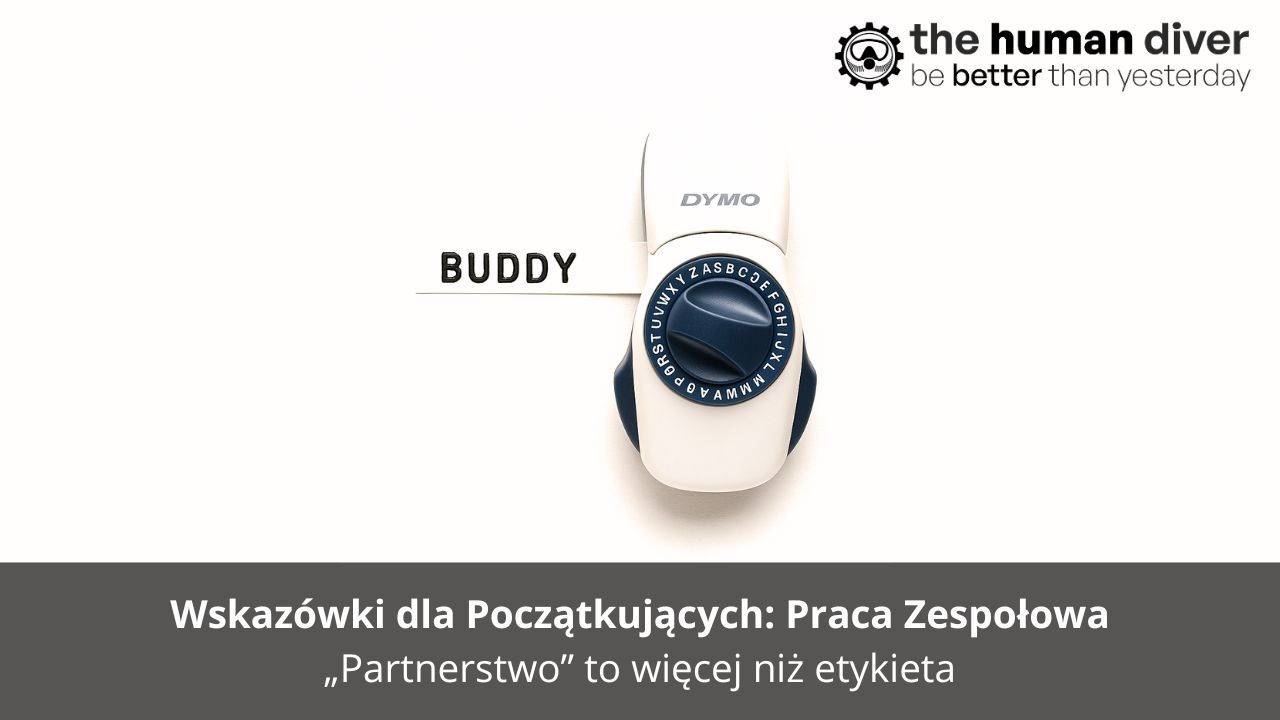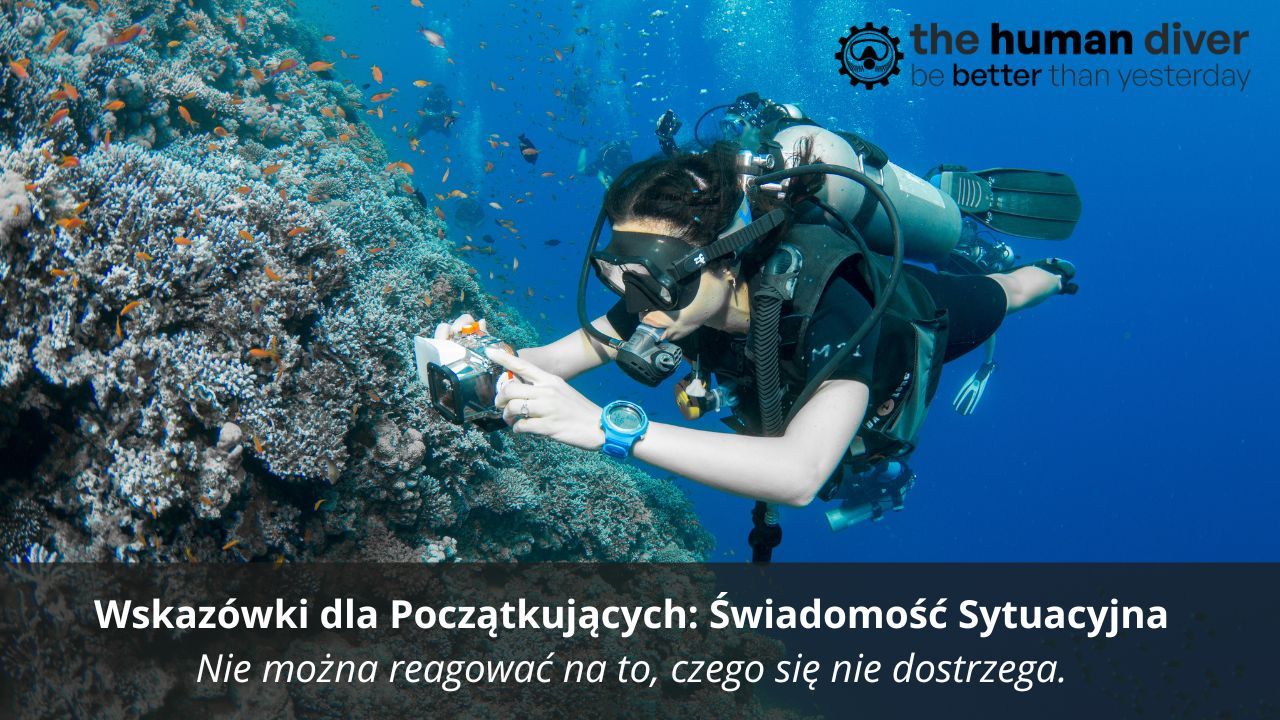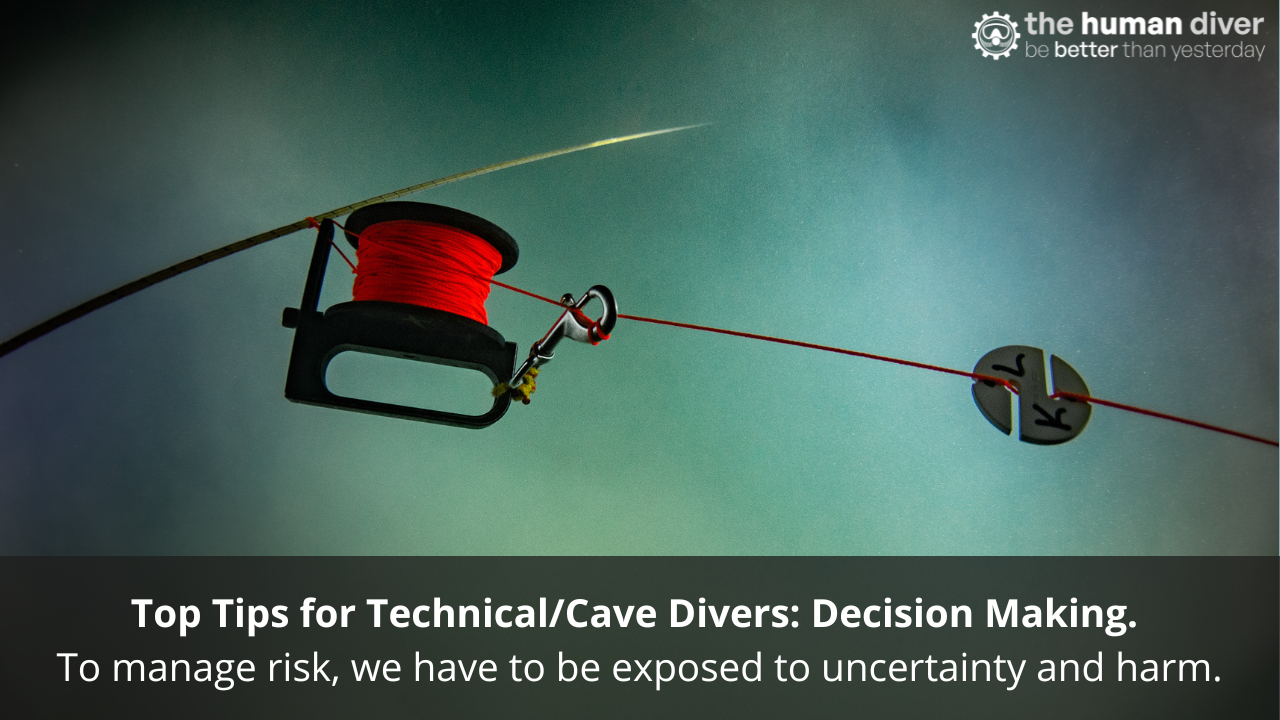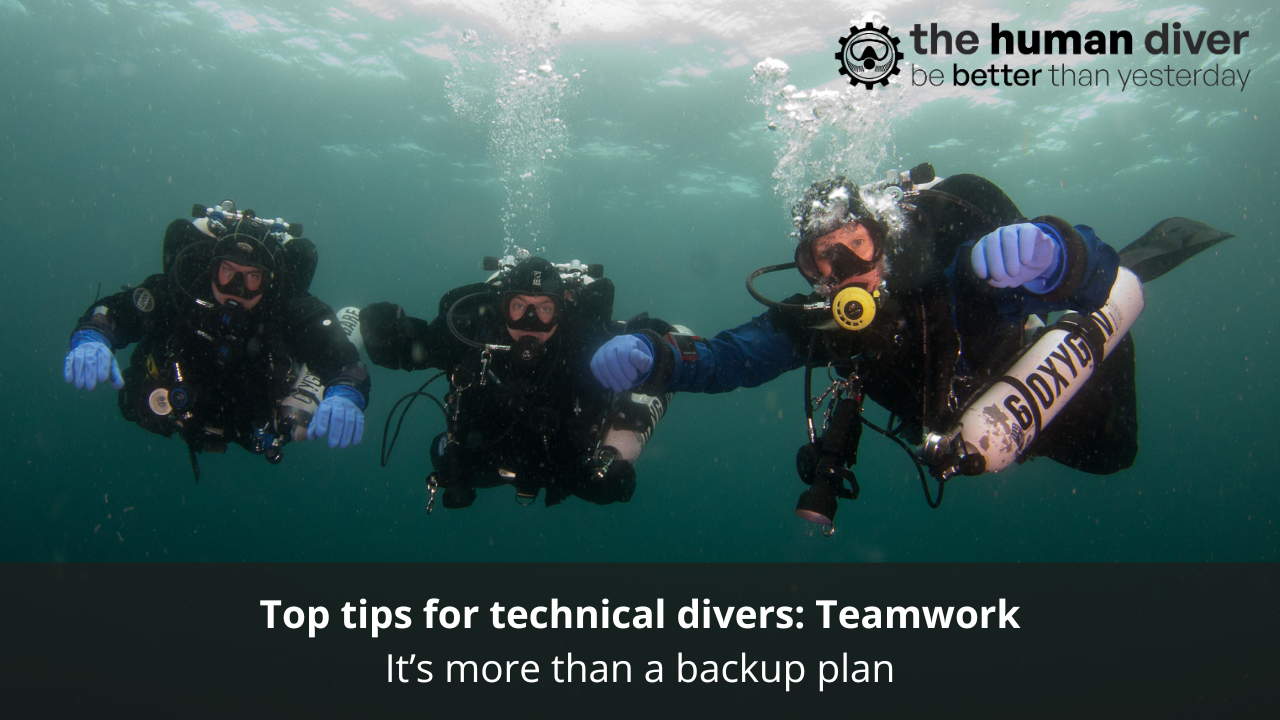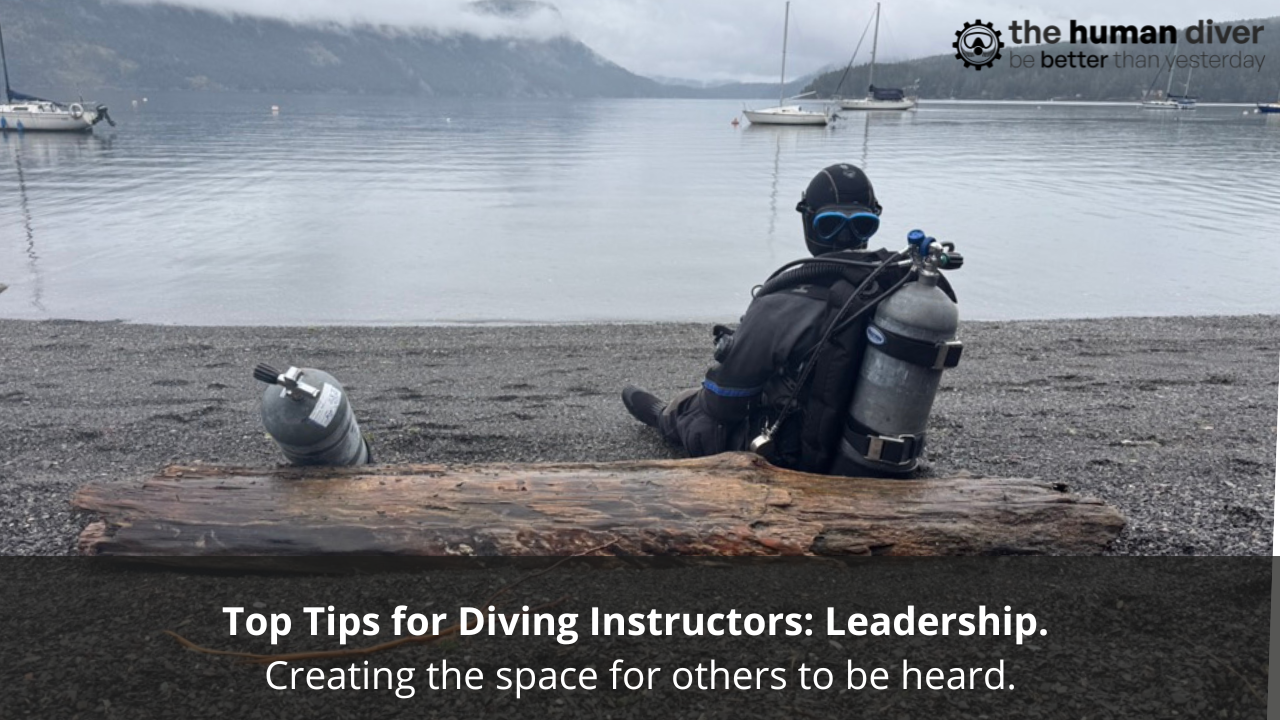
Teams. Buddies. The Difference.
Feb 05, 2025I work in a medium sized dive centre in Egypt. We have about 10 members of staff in the team, including people running the counter, operating the compressor/maintaining the equipment, cleaning and instructing/guiding dives. Someone asked me the other day what I liked about working for this particular centre and it was an easy answer; we are a great team. But what makes a team?
Effective teamwork doesn't just happen. It requires effort so that we are all pointing in the same direction, and holding each other mutually accountable to the standards we have said we'd follow.
This blog is about looking at those who you dive with and moving from a buddy pair or three to a team.
Teams instead of Buddies
Teams have been defined as a group of two or more people, working dynamically, adaptively and interdependently towards a common, shared and valued goal, holding each other mutually accountable in the process. Let's break that down.

- Two or more people... Who is in the team? The in-water group is obvious, but who else. The diving instructor is leading the learning team. The captain of the boat is part of the team. The shore cover are part of the team. Make sure everyone is included in the plan discussion so that when things do go pear-shaped, there is a shared mental model of what was supposed to happen and what the contingency plans are. Use a briefing framework like UNITED-C which will be covered in another blog.
- Dynamically, adaptively... "No plan survives contact with the enemy". I know the phrase 'Plan the dive, dive the plan' is often pushed out as the mantra to follow. The planning process is useful to understand what you're going to do and what might go wrong, but following the plan without understanding how the environment might change can cause problems e.g., we'll swim 20 mins along with the reef and turn around, but the current picks up/changes and now it will take much longer than 20 mins to make it back to the start point. Be prepared to change the plan, don't get stuck with plan continuation bias or sunk cost fallacy (look them up!)
- Interdependently... Teams can achieve more than individual divers as long as they are aware of the goals and they've got complementary skills and knowledge to achieve them. It might be that diver 1 was going to put the dSMB up at a certain time, but they are busy, diver 2 notices this and signals that they will put the bag up instead. Looking out for each other and thinking back to what the goals were.
- Common, shared and valued goal... For this to be the case, you've got to have discussed the plan in a structured brief so nothing has been forgotten, and you must check understanding to make sure everyone is aligned with what the primary goal is. For all sports diving, the primary goal should be to get everyone back on the surface, with no one physically or psychologically harmed in the process, and everyone having had a good time (on reflection). Some training dives might not be 'enjoyable' at the time, but they add value!
- Mutually accountable... To me, this is the key difference between teams and buddies. Teams have a shared responsibility and accountability to each other because there is trust (both ways). If we agree on standards, like gas analysis prior to every dive and the analysis tape has certain details on it, if I don't do that, I expect my team members to call me out and I accept that, and conversely if they've forgotten something, I will call them out and they will accept it. We look out for each other - we trust each other. We are all able to self-rescue, but we work together to reduce the likelihood of the adverse event occurring. That includes practice, planning, briefing, diving, and then DEBrIEFing. All build trust.
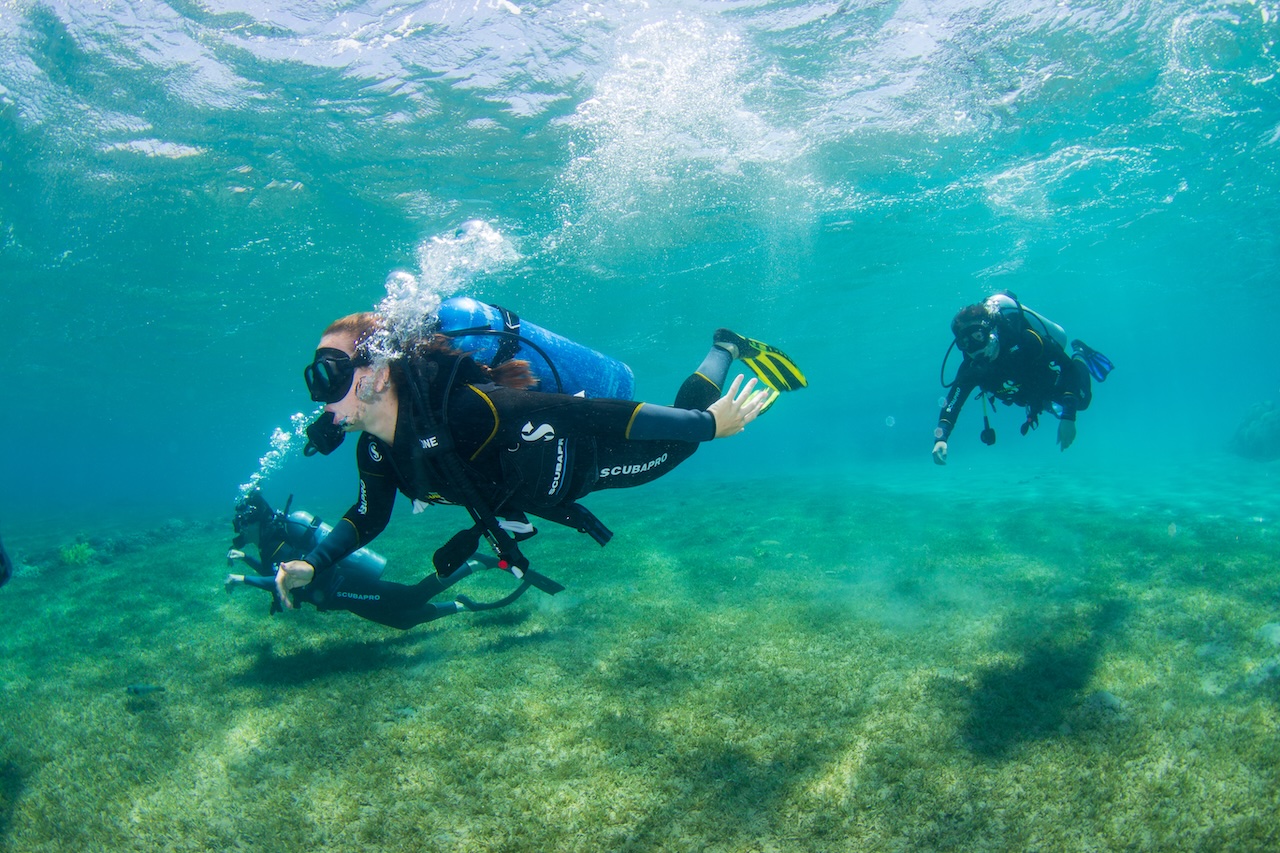
At the centre I work at we have all those points. We know that none of us would work without the others - we need the counter staff to get customers, the instructors to deliver courses or guide dives, the compressor operators to fill the tanks and service the equipment and the cleaners to make the place look good and remain a pleasant environment. Everyone knows their role but crucially understands everyone else’s too, even if they aren’t able to do it. When the centre is busy, those who can jump in on other jobs do - one of our main compressor operators is a Divemaster, so if he’s been pulled in to guide a dive you’ll see others in the team taking it in turns to make sure the tanks are still getting filled in between their own dives. We all understand the goal and values of the centre, they have been clearly communicated by the owner and are passed on to all new members. Then they’re reinforced by our practises and if someone is seen to be moving away from the goal they’ll be called out on it and given any assistance necessary to help them move back towards it.
Over the years the team has grown, changed and improved. We now have a strong support structure for new members (especially those with less experience). We mentor each other; I had help recently from one of the instructors with my sidemount configuration as I hadn’t used it for years. It was great to have him teaching me as previously I’d been his instructor. Most importantly of all, we trust each other. Everyone is capable at their job. People turn up when they say they will and do their best. Everyone looks out for each other.
Then we have the customers. Most people think if they’re just paying someone to guide them on a dive they aren’t part of a team. The reality is that if you’re diving with someone else, you’re in a team with them. Sure, I might be guiding you but that doesn’t make me incapable of making mistakes. Every diver from open water up can help ensure the rest of their team are safe, simple things such as buddy checks, staying aware of depths and times and being able to speak up if they spot something that isn’t right.
How does your 'team' stack up against the above?
Teams take time, effort, and dedication to be effective. Sometimes we don't have all the time we need, but we can take small steps and make changes in the right direction. And positive outcomes are contagious so others copy us.

Jenny is a full-time technical diving instructor and safety diver. Prior to diving, she worked in outdoor education for 10 years teaching rock climbing, white water kayaking and canoeing, sailing, skiing, caving and cycling, among other sports. Her interest in team development started with outdoor education, using it as a tool to help people learn more about communication, planning and teamwork.
Since 2009 she has lived in Dahab, Egypt teaching SCUBA diving. She is now a technical instructor trainer for TDI, advanced trimix instructor, advanced mixed gas CCR diver and helitrox CCR instructor.
Jenny has supported a number of deep dives as part of H2O divers dive team and works as a dive supervisor and safety diver in the media industry.
If you'd like to deepen your diving experience, consider taking the online introduction course which will change your attitude towards diving because safety is your perception, visit the website.
Want to learn more about this article or have questions? Contact us.

